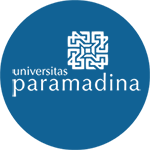PENERAPAN AI (CHATGPT) UNTUK MENINGKATKAN KEMAMPUAN BERPIKIR KRITIS SISWA
Abstract
This study aims to identify the learning strategies of Civic Education (PPKn) at SMA Muhammadiyah 25 Pamulang and to explore the professionalism and criteria of students' abilities in the form of thinking competence. This research uses a descriptive qualitative method with a case study approach, conducted at SMA Muhammadiyah 25 Pamulang. Data collection techniques were carried out through observation, interviews, and documentation. The research subjects involved 1 Civic Education teacher and 3 students. The results of the study show that the implementation of ChatGPT in Civic Education learning has encouraged a shift from traditional learning models toward a more participatory and student-centered approach. Through this technology, teachers can present learning materials in a more exploratory way, while students are assisted in understanding abstract materials more simply. The use of ChatGPT has proven to be quite effective in improving students' comprehension, facilitating more active discussions, and fostering the development of critical thinking skills. ChatGPT offers advantages in terms of quick access to information and flexibility in adapting to students' needs. However, its success highly depends on the teacher's role as a facilitator. Nevertheless, the potential for using ChatGPT is significant if directed properly to enhance the quality of Civic Education learning.
Keywords : AI, ChatGPT, Critical Thinking, Learning
Full Text:
PDFReferences
Antoni, A. (2024). Implementasi teori operant conditioning BF Skinner dalam pembelajaran pendidikan agama Islam. Counselia: Jurnal Bimbingan dan Konseling Pendidikan Islam, 5(1), 181-191.
Arif, H. M., Suhirman, L., Karuru, P., Mawene, A., Supriyadi, A., Junaidin, M. P., & Prastawa, S. (2024). Konsep dasar teori pembelajaran. Cendikia Mulia Mandiri.
Bakrun. (2018). Model Pembelajaran Abad 21. CV. Budi Utama.
Biswas, G., Segedy, J. R., & Bunchongchit, K. (2016). From design to implementation to practice a learning by teaching system: Betty's Brain. International Journal of Artificial Intelligence in Education, 26(1), 350-364.
Brookfield, S. D. (2012). Teaching for critical thinking: Tools and techniques to help students question their assumptions. John Wiley & Sons.
Chen, X., Yin, W., & Xu, J. (2020). Adaptive learning systems in education: A literature review. International Journal of Artificial Intelligence in Education, 30(2), 221-246.
Connolly, M. (2025). AI as thinking partners: Enhancing critical analysis in the classroom. Journal of Educational Technology Insights, 12(3), 45-58.
Dick, W., Carey, L., & Carey, J. O. (2009). The systematic design of instruction. Pearson.
du Boulay, B. (2016). Artificial Intelligence in Education and Ethics. In P. P. Schmele (Ed.), Ethics in educational research (pp. 7-23). Springer.
Ennis, R. H. (2011). The nature of critical thinking: An outline of critical thinking dispositions and abilities. University of Illinois.
Garg, J. (2025). ChatGPT as an empowering catalyst: Unveiling the impact on political awareness and civic education. Journal of Social Change, 19(2), 20149.
Hamalik, A. A. K. (2019). Proses Belajar Mengajar. Bumi Aksara.
Hanafy, M. S. (2014). Konsep Belajar dan Pembelajaran. Lentera Pendidikan, 17(1), 66-79.
Han, Y., & Zhang, Y. (2025). A systematic review of how educators integrate ethics into artificial intelligence curriculum. Interactive Learning Environments.
Harini, D. O. (2024). Pemanfaatan ChatGPT dalam Meningkatkan Kemampuan Berpikir Kritis Mahasiswa. Jurnal Pendidikan, 15(1), 123-135.
Irdayanti, L. S. (2018). Tingkat Kemampuan Berpikir Kritis Matematis Siswa di SMPN 1 Kedungwaru. Skripsi. IAIN Tulungagung.
Jamal, N. A., Kania, D., & Elan. (2025). The Use of Artificial Intelligence in Civic Education Learning. Journal of Educational Technology, 9(2), 210-225.
Liriwati, F. Y. (2023). Transformasi kurikulum: Kecerdasan buatan untuk membangun pendidikan yang relevan di masa depan. IHSAN: Jurnal Pendidikan Islam, 1(2), 62–71.
Mandke, P. (2025, September 8). Teachers in the age of AI: Guiding students beyond algorithms. ET Education.
Musarwan, M., & Warsah, I. (2022). Evaluasi pembelajaran: Konsep, fungsi, dan tujuan-sebuah tinjauan teoritis. Jurnal Kajian Pendidikan Islam, 186–199.
Rahme, L. K., & Halat, R. (2024, May 27). Fostering Critical Thinking Skills with AI Tools in the Classroom: A Comprehensive Toolkit. 21stCenturyEd.
Resmiwal, R., & Amelia, A. (2013). Teori Belajar dan Pembelajaran. Ghalia Indonesia.
Rusht, S., & Huang, Y. (2014). Artificial Intelligence: A Modern Approach. Pearson Education.
Son, et al. (2023). The Impact of ChatGPT on Student Learning. Computers & Education, 198, 104722.
Wineburg, S. S., & McGrew, S. (2019). Civic online reasoning: An essential skill for democratic participation. Stanford University Press.
DOI: https://doi.org/10.71312/mrbima.v1i3.541
Media Riset Bisnis Manajemen Akuntansi (MRBIMA) Indexed by:
Lembaga Penerbit: Taksasila Edukasi Insani
Kontak: Tri Ananto
Alamat Resmi Penerbit: Jl. Cireundeu Raya No.1A, RT.002/RW.06, Kelurahan Cireundeu, Kecamatan Ciputat Timur, Kota Tangerang Selatan, Banten 15419.
Copyright © 2025 of Media Riset Bisnis Manajemen Akuntansi (e-ISSN: 3108-9763 )
Media Riset Bisnis Manajemen Akuntansi © 2025 by Taksasila Edukasi Insani is licensed under Creative Commons Attribution-ShareAlike 4.0 International










